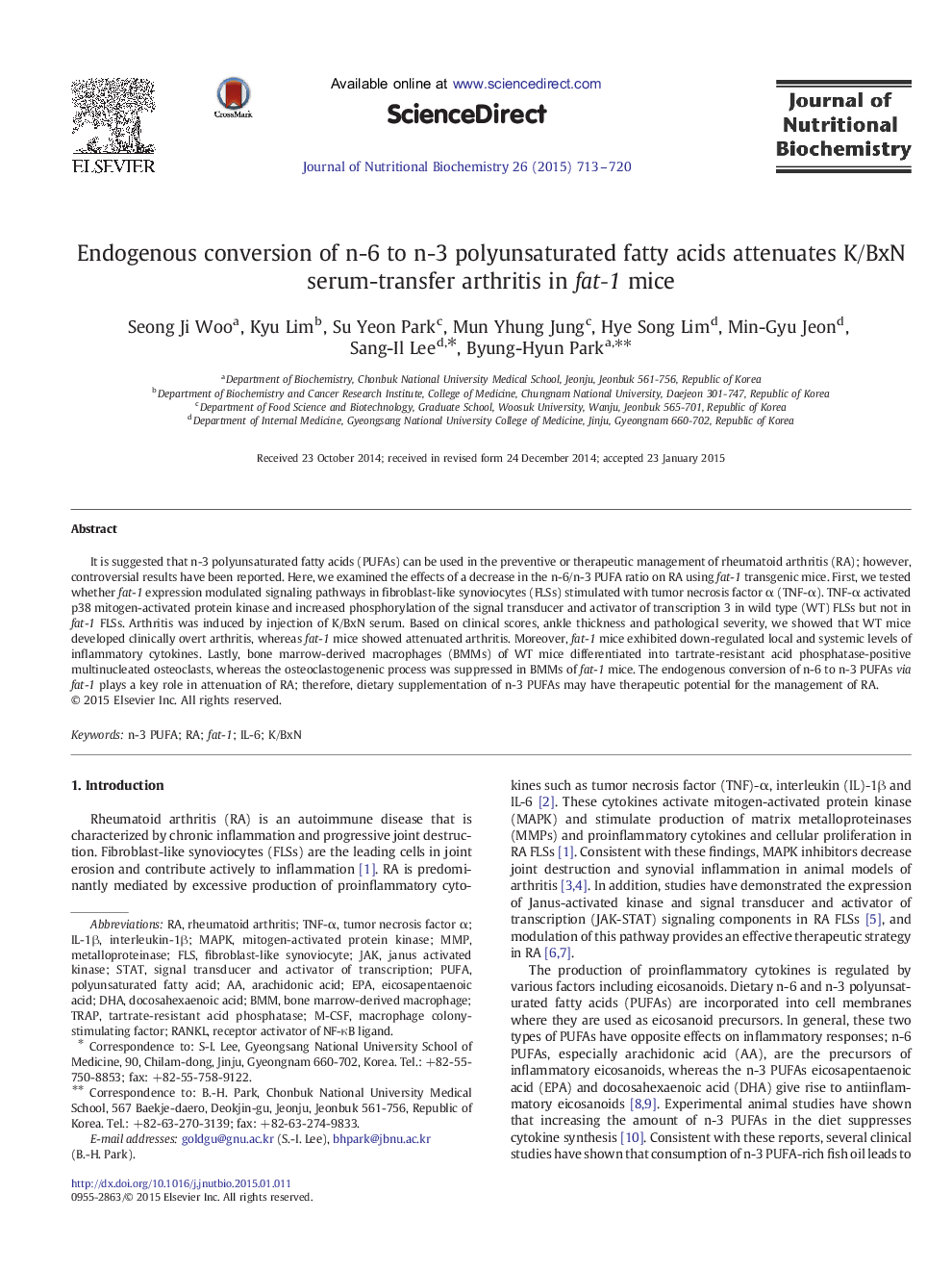| کد مقاله | کد نشریه | سال انتشار | مقاله انگلیسی | نسخه تمام متن |
|---|---|---|---|---|
| 1989672 | 1540647 | 2015 | 8 صفحه PDF | دانلود رایگان |

It is suggested that n-3 polyunsaturated fatty acids (PUFAs) can be used in the preventive or therapeutic management of rheumatoid arthritis (RA); however, controversial results have been reported. Here, we examined the effects of a decrease in the n-6/n-3 PUFA ratio on RA using fat-1 transgenic mice. First, we tested whether fat-1 expression modulated signaling pathways in fibroblast-like synoviocytes (FLSs) stimulated with tumor necrosis factor α (TNF-α). TNF-α activated p38 mitogen-activated protein kinase and increased phosphorylation of the signal transducer and activator of transcription 3 in wild type (WT) FLSs but not in fat-1 FLSs. Arthritis was induced by injection of K/BxN serum. Based on clinical scores, ankle thickness and pathological severity, we showed that WT mice developed clinically overt arthritis, whereas fat-1 mice showed attenuated arthritis. Moreover, fat-1 mice exhibited down-regulated local and systemic levels of inflammatory cytokines. Lastly, bone marrow-derived macrophages (BMMs) of WT mice differentiated into tartrate-resistant acid phosphatase-positive multinucleated osteoclasts, whereas the osteoclastogenenic process was suppressed in BMMs of fat-1 mice. The endogenous conversion of n-6 to n-3 PUFAs via fat-1 plays a key role in attenuation of RA; therefore, dietary supplementation of n-3 PUFAs may have therapeutic potential for the management of RA.
Journal: The Journal of Nutritional Biochemistry - Volume 26, Issue 7, July 2015, Pages 713–720